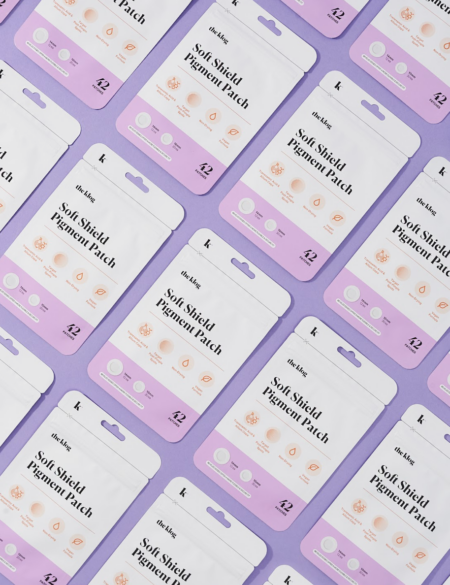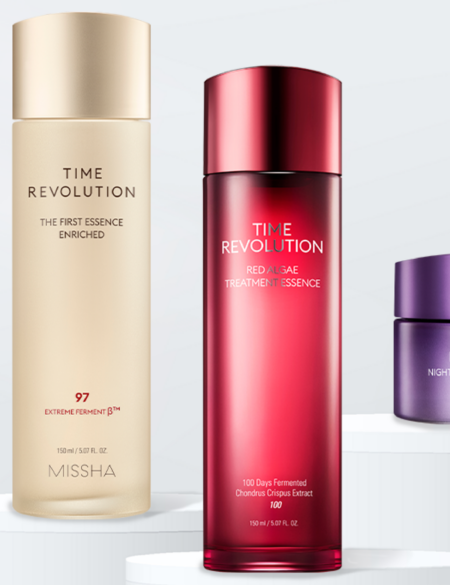From polyglutamic acid to ellagic acid, learn about the chemical exfoliants that dermatologists say are about to be all over beauty shelves.
Many skin care aficionados are familiar with the big-name acids in skin care, such as skin-plumping hyaluronic acid, brightening glycolic acid, and clarifying salicylic acid. While these beauty staples aren’t going anywhere, it’s true that the skin care landscape is consistently evolving. With dermatologist insight, we’re detailing five rising star acids becoming more popular on beauty shelves along with product recommendations so you can try them yourself.
Polyglutamic Acid
“Polyglutamic acid (PGA) is a water-soluble peptide derived from a molecule that’s found in fermented soybeans. It’s touted to retain four to five times more moisture than hyaluronic acid,” says Dr. Sonia Batra, a board-certified dermatologist and co-host of Emmy Award-winning daytime show The Doctors.
Fret not about all your beloved products made with hyaluronic acid, though. Dr. Batra says that instead of being a replacement for hyaluronic acid, it’s often used as a complementary ingredient. This is because hyaluronic acid’s benefits occur in deeper levels of the skin while polyglutamic acid seals the surface. In that sense, the two are great besties that help minimize the appearance of fine lines and wrinkles.
Try it Yourself: Often, you’ll find polyglutamic acid in lightweight serums or thin moisturizers. Dr. Batra recommends Then I Met You The Giving Essence, which helps brighten, plump, and hydrate.
Tranexamic Acid
Tranexamic acid is technically an “old school” ingredient, but one with many new uses.
“It was discovered by happenstance when it was used in an attempt to treat hives (urticaria) and lightened that patient’s melasma,” says Dr. Anna Guanche, a board-certified dermatologist at the Bella Skin Institute in Calabasas, California. “[We’ve since learned that], when applied topically, tranexamic acid helps to fade facial discoloration, brighten skin, and reduce the appearance of pigmented scars. This is a great treatment option for melasma.”
Try it Yourself: Traditionally an oral medication, tranexamic acid is still relatively new to the topical skin care market so there aren’t a ton of options out there (yet). We recommend trying The Inkey List Tranexamic Acid Hyperpigmentation Treatment.
Hydroxyphenoxy Propionic Acid
Similar to tranexamic acid, hydroxyphenoxy proprionic acid is a skin brightening agent, says Dr. Melanie Palm, a board-certified dermatologist in Solana Beach, Calif.
“It has two similar modes of disruption in hyperpigmentation of the skin. First, it decreases melanin production, and second, it interferes with pigment transfer from the melanocyte to skin cell (keratinocyte),” she explains. “It is special in that it is a non-toxic derivative of hydroquinone, the gold-standard topical brightening agent, but one which some consumers have concerns in using.”
Try it Yourself: With the above in mind, it makes sense that you’re most likely to find hydroxyphenoxy proprionic acid in skin care products used to decrease sunspots, brighten the skin, and improve tone and vibrance. If you’re interested in testing this rising star skincare acid, try SkinCeuticals Advanced Pigment Corrector.
Ellagic Acid
“Ellagic acid is a powerful antioxidant polyphenol that can be found in many red fruits and berries, including raspberries, strawberries, blackberries, cranberries, pomegranate, and some nuts including pecans and walnuts,” says Dr. Guanche. “It helps reduce free radicals that can promote and accelerate skin aging, and it also has a brightening effect.”
Like hydroxyphenoxy proprionic acid, it’s considered a gentler, more universally approved alternative to hydroquinone. For that reason, the ingredient is often used in anti-aging and anti-pigmentation program.
Try it Yourself: Then I Met You’s The Giving Essence also contains ellagic acid.
Alpha Lipoic Acid
Alpha lipoic acid is another potent antioxidant that acts as a shield against free radicals when applied topically. In fact, Dr. Batra says that its antioxidant properties are stronger than both vitamin C and E combined.
She adds, “Alpha lipoic acid is also both water and lipid soluble, so it is easily absorbed in the skin and the cell membrane. When used regularly, it helps prevent hyperpigmentation and collagen breakdown caused by ultraviolet damage.”
Try it Yourself: The Ordinary’s Alpha Lipoic Acid 5% is a great and affordable way to get your hands on this ingredient.















